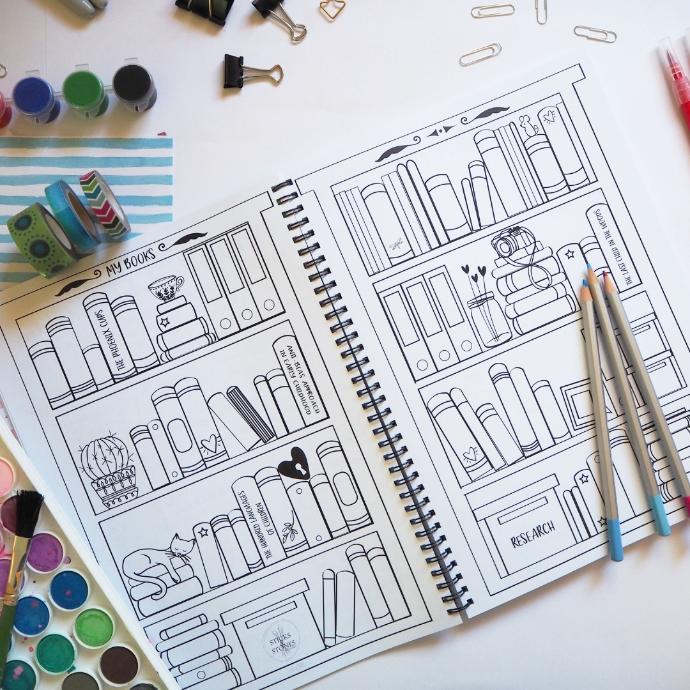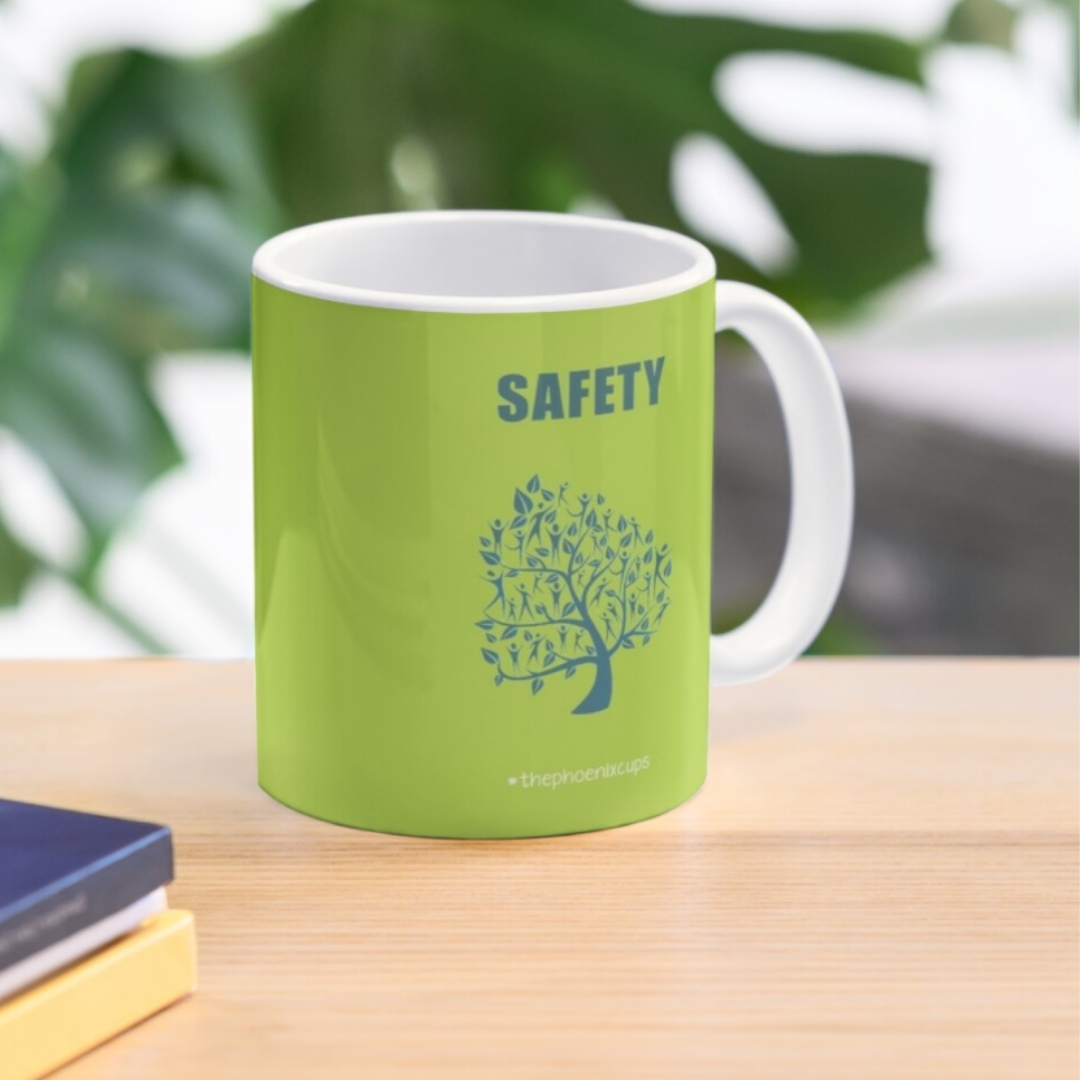Recommended videos
Do schools kill creativity?
Sir Ken Robinson TED talk
Every kid needs a champion
Rita Pierson TED Talk
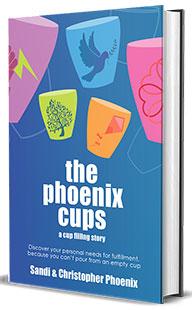
The Phoenix Cups: A Cup Filling Story - Sandi & Christopher Phoenix
As human beings, we all have needs that need to be met. When they aren’t met, life doesn’t function the way it should. our behaviour changes, our mood is affected, and we often feel empty and lost. The Phoenix Cups Framework will help you understand how to meet your most important life needs, and the needs of those around you, by discovering what Cups you need to keep full, how they influence behaviours and how you can use them to build relationships in all aspects of life.Buy it here >>>
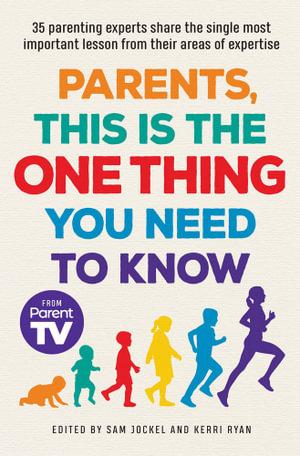
Parents, this is the one thing you need to know - Edited by Sam Jockel and Kerri Ryan
Any parent knows raising kids can be as confusing, challenging and maddening as it is profoundly life-affirming. We can’t possibly have all the answers, all the time, but there are some parts of parenting you absolutely should not drop the ball on.
In this book, Parent TV’s Sam Jockel and Kerri Ryan have sought the wisdom of thirty-three experts to solve parenthood’s most diabolical head-scratchers. With diverse backgrounds in children’s health, education and psychology, these experts are armed with the data and insight to tackle everything from kids’ resilience to their relationship with food and the influence of music on developing brains.
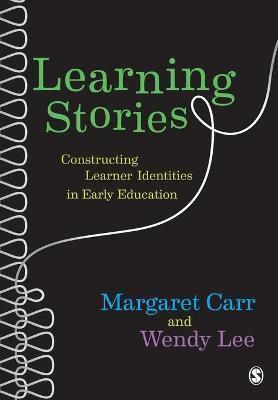
Learning Stories : Constructing Learner Identities in Early Education
Margaret Carr's seminal work on Learning Stories was first published by SAGE in 2001, and this widely acclaimed approach to assessment has since gained a huge international following. In this new full-colour book, the authors outline the philosophy behind Learning Stories and refer to the latest findings from the research projects they have led with teachers on learning dispositions and learning power, to argue that Learning Stories can construct learner identities in early childhood settings and schools. By making the connection between sociocultural approaches to pedagogy and assessment, and narrative inquiry, this book contextualizes Learning Stories as a philosophical approach to education, learning and pedagogy.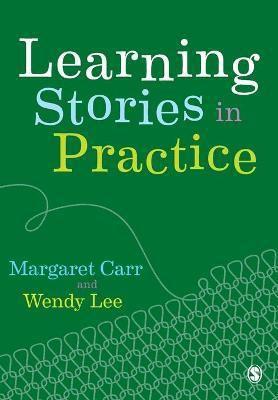
Learning Stories in Practice
Margaret Carr and Wendy Lee have often been asked for a follow-on practical companion to their seminal 2012 book Learning Stories; a complimentary book that provides practical advice for teachers who are embarking on a 'narrative assessments-for-learning' journey. After much anticipation that book is here at last!
Packed with a wide range of full-colour examples of real life learning stories from all over the world this practical guide is influenced by their ongoing work with teachers across many countries and the thoughtful comments and questions that teachers have asked during conversations at conferences, lectures and professional development programmes. They have turned these conversations with teachers and students into key ideas, and a practical framework on how to initiate and create good learning stories and why they are valuable.
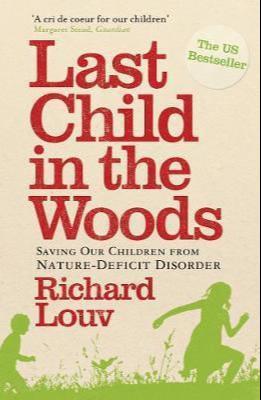
Last Child in the Woods : Saving our Children from Nature-Deficit Disorder
Camping in the garden, riding bikes through the woods, climbing trees, collecting bugs, picking wildflowers, running through piles of autumn leaves... These are the things childhood memories are made of. But for a whole generation of today's children the pleasures of a free-range childhood are missing, and their indoor habits contribute to epidemic obesity, attention-deficit disorder, isolation and childhood depression.
This timely book shows how our children have become increasingly alienated and distanced from nature, why this matters and how we can make a difference. Last Child in the Woods is a clarion call, brilliantly written, compelling and irresistibly persuasive - a book that will change minds and lives.
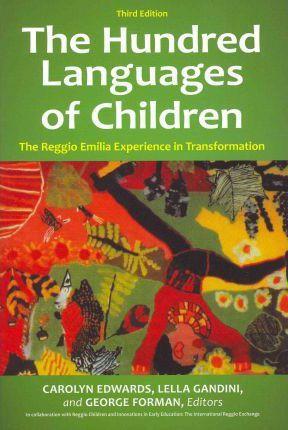
The Hundred Languages of Children : The Reggio Emilia Experience in Transformation, 3rd Edition
Why does the city of Reggio Emilia in northern Italy feature one of the best public systems of early education in the world? This book documents the comprehensive and innovative approach that utilizes the "hundred languages of children" to support their well-being and foster their intellectual development.
Educators in Reggio Emilia, Italy, use a distinctive innovative approach that supports children's well-being and fosters their intellectual development through a systematic focus on symbolic representation. From birth through age six, young children are encouraged to explore their environment and express their understanding through many modes of expression or "languages," including verbal communication, movement, drawing, painting, sculpture, shadow play, collage, and music. This organic strategy has been shown to be highly effective, as the children in Reggio Emilia display surprising examples of symbolic skill and creativity.
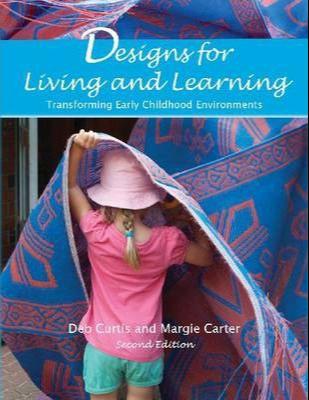
Designs for Living and Learning : Transforming Early Childhood Environments
You likely have dreams for your early childhood environment that are greater than rating scales, regulations, and room arrangements. Designs for Living and Learning has been a favourite resource among educators and caregivers for more than a decade, and this new edition is packed with even more fresh ideas that can be used as you create captivating environments that nurture children, families, and staff while supporting children's learning. With hundreds of all-new colourful photographs of real early learning settings and a multitude of simple and practical concepts for creative indoor and outdoor spaces and learning materials, this book truly is a source of inspiration as you learn how to shape welcoming spaces where children can learn and grow.
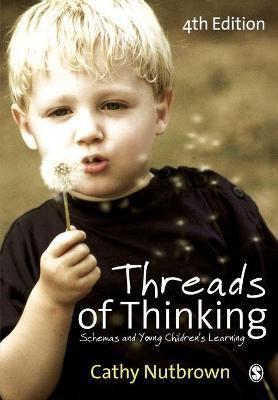
Threads of Thinking : Schemas and Young Children's Learning
In her new edition of this popular book, Cathy Nutbrown presents evidence of continuity and progression in young children's thinking. She shows, with detailed observation, that they are able and active learners. She considers aspects of children's patterns of learning and thinking - or schemas - and demonstrates clearly how children learn in an active, dynamic and creative way.
This book makes schema theory explicit in practice. Supported by numerous detailed examples and the discussion of difficult theoretical issues, it illustrates children's learning in areas such as literacy, maths and science.
Recommended articles, resources and posts
Schemas in children's play
Schemas in Children’s Play are such an important concept when it comes to the development of our children that it’s worth taking the time to understand them so you can facilitate them when you see them.Burn the rosters and free the teachers
This article discusses the issues surrounding the use of rosters within early childhood settings, particularly infant and toddler environments. The team at Massey Child Care Centre in New Zealand highlight the importance of refocusing on children's rhythms and bringing teachers' attention back to what is most important... the child.The unconventional guide to improving handwriting skills (part 1): Put the pencil down and get outside
Fine motor skill development is only possible if core strength and stability is present. In order to effectively control arm movement, a child must already have proper muscle tone and stability in her trunk. Once this strong, solid base is established, the arm and hand are free to make the precise, coordinated movements need for drawing, cutting and writing.The unconventional handwriting guide (part 2): Less sports, more dirt
“Any OT will tell you that the foundation for fine motor skills lies in strength and stability of the core… plenty of gross motor play and time on playground equipment outside is really important for handwriting.”The unconventional handwriting guide (part 3): Modern toys are ruining your child's handwriting
Toys and day to day life at home used to provide lots opportunities for children’s fine motor growth. But suddenly we are seeing a large number of children who are lacking adequate core, upper body and finger strength and dexterity to successfully pick up a pencil and write with ease. Has home life really changed that much in the last 25 years to affect children’s fine motor development?Reading readiness has to do with the body
Today’s kids sit more than ever. Babies spend hours confined in car seats and carriers rather than crawling, toddling, or being carried. As they get older their days are often heavily scheduled between educational activities and organized events. Children have 35 percent less time for free play than they did a generation ago, and that’s before factoring in distractions like TV or video games.Worldviews, theories and philosophies in children's services
This audio-visual resource is a collection of conversations with academics, educators, policy makers and activists offering an insight into the wide range of worldviews, theories and philosophies that have helped to inform and define their everyday practice.The evolution of an accidental meme
My jaw hit the keyboard…that was my image, but it also wasn’t my image. It was the concept behind my image, but completely redrawn (and by someone with actual artistic talent!). I was stunned…and delighted.On developmentally appropriate practice... and why we don't push kids down the stairs
Toddlers can’t walk down the stairs with alternating steps. They just can’t. While your kindergartener bounds down the stairs taking each step in stride (or several in one super-hero bound, as mine is prone to do), your toddler will cling to the wall or rail as she takes a careful step down with one foot, then brings the other foot to that same step to stand firmly before venturing down in that same slow, tentative manner for another (step together), then another (step together), then another (step together).The real reason why children fidget
Fidgeting is a real problem. It is a strong indicator that children are not getting enough movement throughout the day. We need to fix the underlying issue. By Angela Hanscom, Paediatric occupational therapist and founder, TimberNook.PDF Download - Connection Plan
The Free trial of our Educator's Toolkit for Behaviour online course has a whole bunch of awesome downloads - including our famous 'Connection Plan'. Just hit th FREE trial button on the course and login.Must have resources for educators
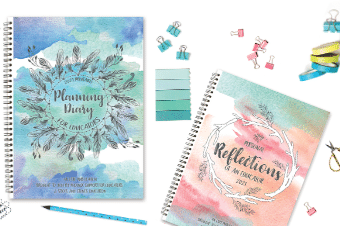
Reflections of an Educator - diaries, journals and more
Phoenix Support for Educators founder and managing director, Sandi Phoenix, co-founded 'Reflections of an Educator' with the team at Sticks & Stones Education resources. If you ask us... these diaries, journals, notebooks, programming calendars, printable EYLF scrapbooks and more are all essential! The only challenge you'll have is what to leave OUT of your cart. Happy shopping.

The Phoenix Cups exclusive merch store
Browse the Phoenix Cups merch shop for t-shirts, mugs, clothing, homeware and more. Create your own custom made products on our RedBubble site then get it delivered straight to your door. Sooo fun! Click here to have a play.
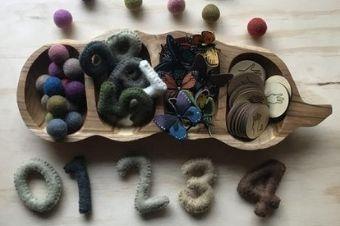
Sticks & Stones Education
Sticks & Stones Education is your favourite provider of quality toys that support children's learning and development through play. They offer wooden toys, play-dough tools, arts & crafts, animal figurines, felt toys and so much more at your fingertips. At Phoenix Support, they're our preferred educational resource provider.
